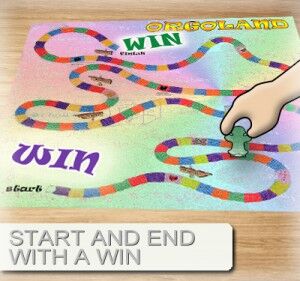 Picture this scenario. You know you have to study for a big exam, but you're not confident with the material. You open your book to study, find yourself getting more and more frustrated, and just give up.
Picture this scenario. You know you have to study for a big exam, but you're not confident with the material. You open your book to study, find yourself getting more and more frustrated, and just give up.
You know you need to study, but keep finding good reasons to procrastinate until the day before the exam. Suddenly there’s no time to procrastinate, so you cram and cram until you're exhausted, frustrated, and more confused than ever.
Your exam does NOT turn out as planned.
Does this sound familiar?
I was a huge procrastinator in college, and as a tutor I work with many students who regularly procrastinate. It's a big issue for college students. You know there's work to be done, but something keeps holding you back.
Although I have no official scientific proof to validate this, as I experimented on, or rather, coached my many students, I discovered that they had the same problem I did.
It's Human Nature To Avoid Pain
I don't like pain. While I have a high tolerance for physical pain, I still I don't like to feel sad or hurt. It's human nature. In studying for an exam that I knew I'd ace, I had no problem opening my books and getting on with it.
But when I found myself studying to the point of frustration, I’d end up feeling bad; and then ‘avoiding emotional pain’ became my really good excuse to not study.
Forcing yourself to study through this emotional pain doesn’t work. To eliminate fear-induced procrastination you have to mentally change your attitude about studying – by taking away the fear.
How? By starting and ending every study session with a win.
Starting with a Win
For me, the hardest part about studying was the getting-started portion because I knew that ‘starting’ might lead to pain; once my books were open, though, I would find the motivation to keep going, and going, and going.
The key to getting started?
Start with something that is not painful. Something easy.
If you know you have 3 hours to study, use that first half hour to review something that you already know you know. For example, if you're working on alkene reactions in organic chemistry, use the first half hour to review naming of alkenes and nucleophile/electrophile concepts. These are important, yet easier compared to more difficult reactions.
If you're studying MCAT Forces and Motion, start with a quick review of trigonometry, or perhaps spend 15-30 minutes on Active Writing for the kinematic equations to ensure you have them properly memorized.
By starting with something you know, you'll feel confident and motivated to keep going. It's not new or difficult material, so you won't get stuck.
This 30-minute confidence booster will provide you with a review of must-know concepts, and put you in a positive mindset so that you can keep studying and tackling material that is potentially difficult.
Ending with a Win
With most of your study session devoted to the difficult material, you've hopefully made progress and mastered the material intended. Perhaps you are still shaky in some concepts, and maybe even a bit frustrated; that's fine, because at least you've made progress.
With just 30-45 minutes remaining, put the difficult material aside, take a short break, then devote the final 30 minutes to again reviewing something that you know you know. Use this segment to end your studies on a confident note, to review basics, strengthen your foundation, and end with a positive feeling of this study session.
Study Block Suggestion for MCAT Students
Another option, especially for MCAT students covering 3 years worth of undergrad science, is to break up your study blocks accordingly:
- 30 minutes review of past content within this subject
- short break then work on new material for most of your study block
- short break then Active Writing on this subject for the last 15-20 minutes
In using the ‘start-and-end-with-a-win’ method, you're accomplishing the following:
You feel positive about your study experience. You hopefully now view the new material as at least ‘interesting’ so you will be less likely to sabotage your efforts tomorrow when it comes time to open your notes again.
Starting with something simple, you open with positivity, reinforce the can-do, lack-of-fear in your brain, and make the session easier to get into.
By ending with a win, you're telling your brain “this studying wasn't so bad”, thus not fearing tomorrow's session (and dare I say looking forward to it).
By starting the next session with a win, you're telling your brain “see, this is easy, let's do this”.
I'd like to hear from you. Do you find yourself procrastinating in your studies? If so, do you think it has to do with that inner voice of fear trying to save you from the pain? Let me know by leaving a comment below.


